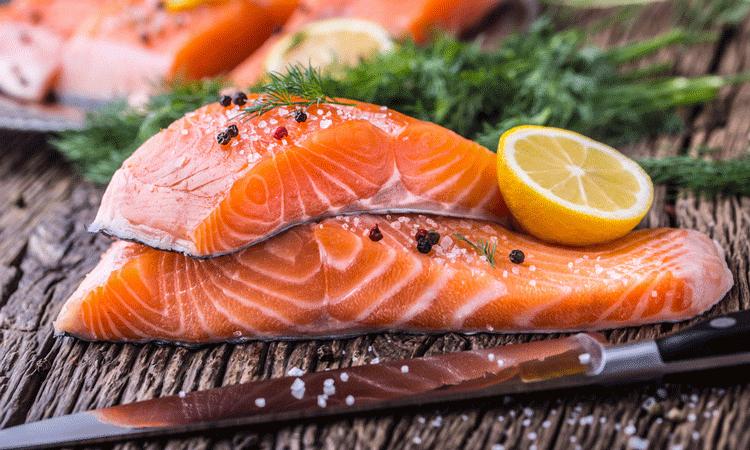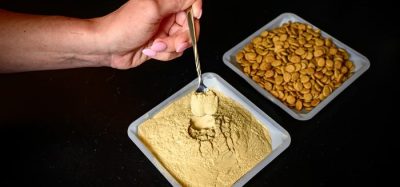Could GM fed salmon be more nutritious than non-GM fed salmon?
Posted: 2 August 2018 | Iqra Farooq (New Food) | No comments yet
Omega-3 levels have declined in recent years, and this study may help return omega-3 levels in farmed fish to those from over a decade ago.


Scientists at the University of Stirling are customising the feed for salmon on a fish farm in order to tackle the decreasing levels of omega-3 fish oils.
In collaboration with Rothamsted Research, the scientists are using a new feed solution for Atalntic farmed salmon, created from a genetically modified plant.
Wild fisheries provide the beneficial oils, however with them at their sustainable limits, existing stock cannot provide enough omega-3 for a global population.
Currently, to tackle this issue farmed fish are given a blend of feed, marine fish oil (sourced from the sea) and vegetable oil. However, this study may return omega-3 levels in farmed fish to those from over a decade ago.
Professor Johnathan Napier from Rothamsted Research and Professor Douglas Tocher, fish nutritionist from Stirling’s Institute of Aquaculture jointly led the study.
“The joint project allows us to culture salmon to market size in sea pens while extracting data to ensure new feeds support good growth, feed use and product quality”, Prof Tocher said.
Prof Napier explained: “This is the largest feeding trial to validate the efficacy of the project. It’s extremely significant because it will demonstrate the ability to use omega-3 fish oils from plants across the whole production cycle of salmon.”
The customised feed will include oil pressed from a genetically modified crop plant, Camelina. This plant has high levels of beneficial omega-3 fatty acids, proving to be a cost-effective source for aquaculture feed.
During the study, Dr Monica Betancor will continually check the health of the salmon and collect data.
She said: “Collecting samples and analysing the data are imperative to the project. To test the performance of the fish, I’ll be measuring the weight and growth of the fish, but also looking at tissue and molecular samples comparing results of fish fed the new fish feed to salmon fed a standard diet.”
The researchers aim to prove their concept with the results of this study, along with a potential solution to the sustainability issue in supplying fish oils to farmed fish. Prof Napier has been studying methods of developing sources of omega-3 using plants for a long time.
He said, “It’s taken a decade to develop plants able to produce the oils and be used in aquaculture. This GM technology shows great promise as a potential solution to help fish farming remain even more sustainable while continuing to grow as an industry.”
Previous studies have suggested a link between omega-3 fish oils, also known as omega-3 long chain polyunsaturated fatty acids, and benefits to human health.
The new study is funded by the Biotechnology and Biological Sciences Research Council.
Related topics
Food Safety, Genetic modification (GMO), Research & development, Sustainability
Related organisations
Related people
Dr Monica Betancor, Professor Douglas Tocher, Professor Johnathan Napier









